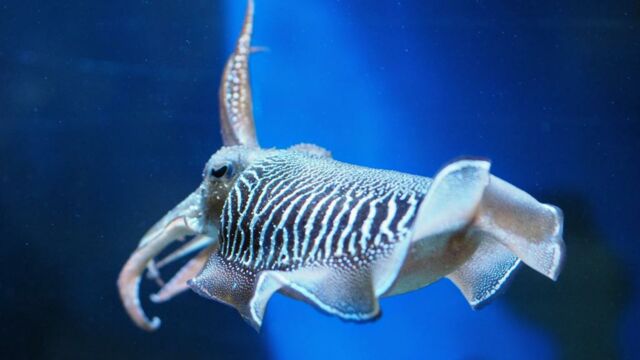New research has found that cuttlefish, a marine invertebrate closely related to squids and octopi, have the ability to exhibit human-like delayed-gratification attributes –a first for any invertebrate.
Discover our latest podcast
Self-control: a sign of intelligence
In the study published in Proceedings of the Royal Society B, cuttlefish were able to pass the 'marshmallow test' which is an experiment with the aim to test whether children have the self-control to wait for a more gratifying reward.
The so-called marshmallow experiment was first carried out in Stanford in the 1960s. The test worked by giving children the choice between having one marshmallow (the reward) immediately or double the quantity of another treat (an even better reward) in 20 minutes.
The experiment obviously had to be modified to be conducted with cuttlefish. Instead of sweets, the cuttlefish were given the choice to either indulge between a preferred meal like grass shrimp or king prawn versus a less desirable meal like Asian shore crab.
The two options were presented with two drawers; one that opened immediately containing the crab and the other opened only after a delay containing the preferred meal. If the first option was chosen then the second snack would disappear all together.
What did the study find?
According to Alex Schnell, lead author and University of Cambridge psychology research associate:
Self-control is thought to be the cornerstone of intelligence, as it is an important prerequisite for complex decision-making and planning for the future.
And added:
Cuttlefish in the present study were all able to wait for the better reward and tolerated delays for up to 50-130 seconds, which is comparable to what we see in large-brained vertebrates such as chimpanzees, crows and parrots
The study also tested the cuttlefish for intelligence which found that those who were able to wait a bit longer for their favourite foods was a mark of greater intelligence as they also performed better on a learning test.
This is a huge feat for the aquatic animal as intelligence and self control have only ever been recorded in humans and chimpanzees.















